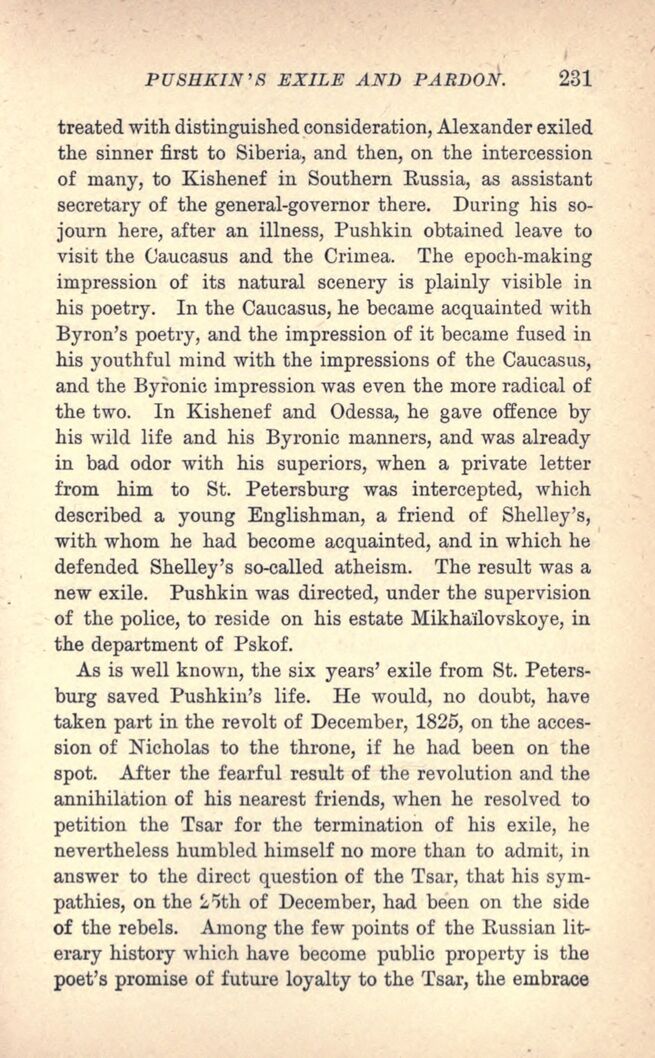
Full resolution (JPEG) - On this page / på denna sida - Impressions of Russian Literature - III

<< prev. page << föreg. sida << >> nästa sida >> next page >>
Below is the raw OCR text
from the above scanned image.
Do you see an error? Proofread the page now!
Här nedan syns maskintolkade texten från faksimilbilden ovan.
Ser du något fel? Korrekturläs sidan nu!
This page has been proofread at least once.
(diff)
(history)
Denna sida har korrekturlästs minst en gång.
(skillnad)
(historik)
treated with distinguished consideration, Alexander exiled
the sinner first to Siberia, and then, on the intercession
of many, to Kishenef in Southern Russia, as assistant
secretary of the general-governor there. During his
sojourn here, after an illness, Pushkin obtained leave to
visit the Caucasus and the Crimea. The epoch-making
impression of its natural scenery is plainly visible in
his poetry. In the Caucasus, he became acquainted with
Byron’s poetry, and the impression of it became fused in
his youthful mind with the impressions of the Caucasus,
and the Byronic impression was even the more radical of
the two. In Kishenef and Odessa, he gave offence by
his wild life and his Byronic manners, and was already
in bad odor with his superiors, when a private letter
from him to St. Petersburg was intercepted, which
described a young Englishman, a friend of Shelley’s,
with whom he had become acquainted, and in which he
defended Shelley’s so-called atheism. The result was a
new exile. Pushkin was directed, under the supervision
of the police, to reside on his estate Mikhaïlovskoye, in
the department of Pskof.
As is well known, the six years’ exile from St.
Petersburg saved Pushkin’s life. He would, no doubt, have
taken part in the revolt of December, 1825, on the
accession of Nicholas to the throne, if he had been on the
spot. After the fearful result of the revolution and the
annihilation of his nearest friends, when he resolved to
petition the Tsar for the termination of his exile, he
nevertheless humbled himself no more than to admit, in
answer to the direct question of the Tsar, that his
sympathies, on the 25th of December, had been on the side
of the rebels. Among the few points of the Russian
literary history which have become public property is the
poet’s promise of future loyalty to the Tsar, the embrace
<< prev. page << föreg. sida << >> nästa sida >> next page >>